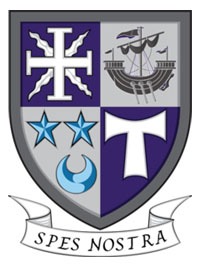 Candidates who would benefit from using digital papers
Candidates who would benefit from using digital papers
- Difficulties with legibility of handwriting;
- Candidates with medical condition, eg arthritis in hands, which makes handwriting painful/difficult;
- Candidates with organisational difficulties.
Candidates must have reasonably keyboard skills if this is to be a support for them.
Teaching pupils to use Digital Papers
If the papers to be used involve only the on-screen version of the normal paper, candidates will find this very easy to master as it's only a question of tabbing from one answer box to the next. Practising before the actual exam is needed, but not arduous and the technique is very quickly learned.
Staff awareness and development
Beyond the small number of teachers who have worked with the two candidates who have used digital papers, we haven't any great awareness within the school so far. We haven't attempted to create digital prelim papers ourselves. There are some issues in the ICT set-up in schools generally in this authority which would not encourage me to increase the number of pupils sitting digital papers by more than a very gradual rate.
Access to hardware and software
So far all I have required is Acrobat Standard installed on 2 laptops. This had to be done by an Administrator - but that's the system within this local authority. We used a memory stick to transfer the completed papers direct to a printer, not using any networked machines for the candidates sitting the papers. If the school has an ICT technician, this would be the ideal way to cover the admin side.
Administering the digital papers 'on the day'
The Chief Invigilator released the packages containing the CDs and paper copies before the exam was due to start and they were loaded on to the laptops by the Principal Teacher Support for Learning and checked to make sure they were ok. The paper was loaded in such a way that a simple 'Save' was all that was required to save the candidate's work on the memory stick. The candidates worked either in the Library or in another area, separately from the main exam room. The Invigilator was positioned where he/she could see the screen, without being 'in the candidate's face'.
At the end of the exam the candidate would save the work and give the memory stick to the Invigilator, who brought it to the PT SfL for printing. The candidate's work was then deleted from the memory stick in the presence of the Invigilator. If the person responsible for printing off the candidate's work from a digital paper is also involved in supporting other candidates during the exam time, this can make printing off work in between papers a rather rushed job! Try to have access to a laser printer, rather than an ink-jet for speed.
Comments, advice and suggestions from students
The two candidates in this school who have worked with digital papers have been very positive about the experience and found it very easy to manage.




